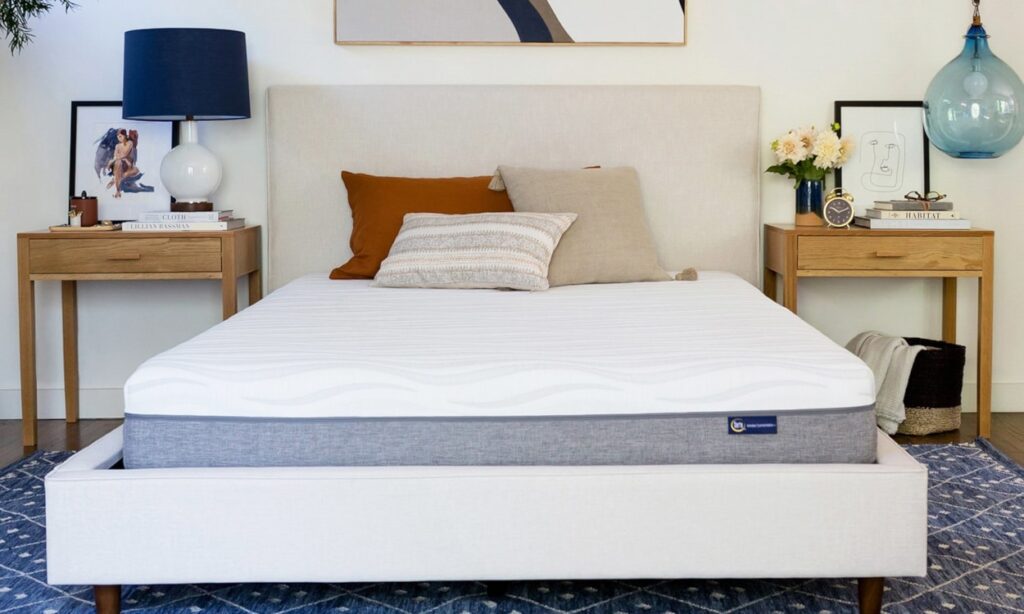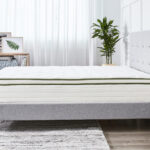Are you looking for the best memory foam mattress for a good night’s sleep? If so, you’ve come to the right place. In this article, we’ll be exploring how thick the best memory foam mattress should be to provide the most comfortable and restful sleep experience. We’ll also provide some tips and advice on choosing the right memory foam mattress for your individual needs. So, if you’re curious about how thick a memory foam mattress should be to provide maximum comfort, read on for all the answers!
What is Memory Foam?
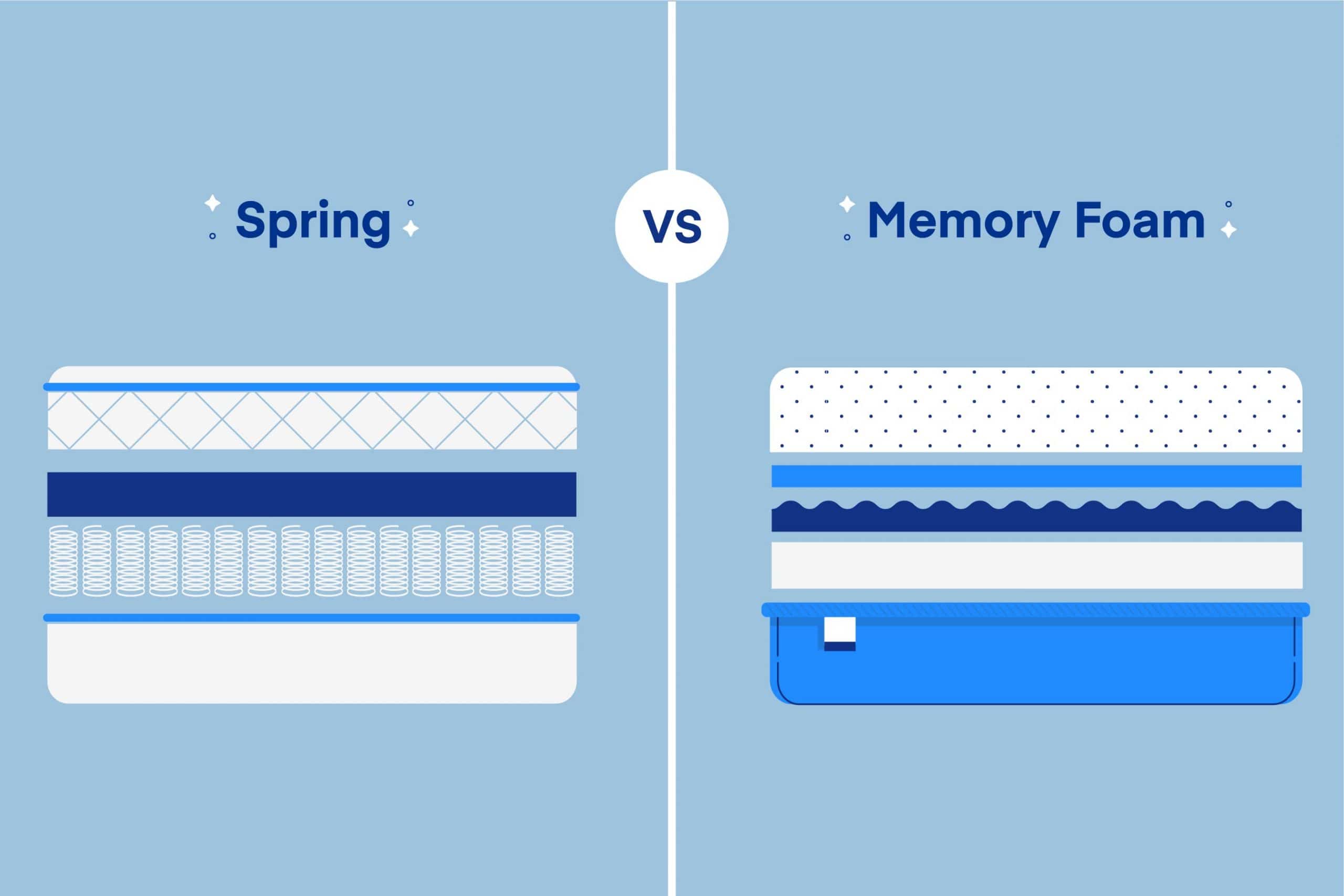
Memory foam is a temperature-sensitive foam material used in mattresses and pillows. It is made of polyurethane with additional chemical compounds added to increase its viscosity and density. Its unique properties allow it to distribute body weight evenly, reduce pressure points, and provide superior comfort. Memory foam is also known for its ability to contour to the shape of the body and its durability over time.
When it comes to finding out what size memory foam mattress is best, it depends on a variety of factors. Different mattress thicknesses are suitable for different body types, sleeping positions, and other factors. Generally, thicker memory foam mattresses provide more support and comfort, whereas thinner mattresses are ideal for those who prefer a firmer surface.
Here are some of the factors that should be taken into consideration when selecting the best mattress thickness:
- Body type and weight – Thickness should be chosen based on your body type and weight. Heavier individuals may find thicker mattresses more comfortable, while lighter individuals may prefer thinner mattresses.
- Sleeping position – Different sleeping positions require different levels of support. For example, side sleepers may benefit from thicker mattresses because they provide more cushioning and help reduce pressure points.
- Firmness – Firmness is another important factor to consider when choosing the best mattress thickness. Softer mattresses are usually thicker, while firmer mattresses are usually thinner.
- Personal preference – Ultimately, your personal preference should be the deciding factor in choosing the best mattress thickness. If you want a mattress that is both comfortable and supportive, then a medium-thickness mattress is probably the best option.
Benefits of Memory Foam Mattresses
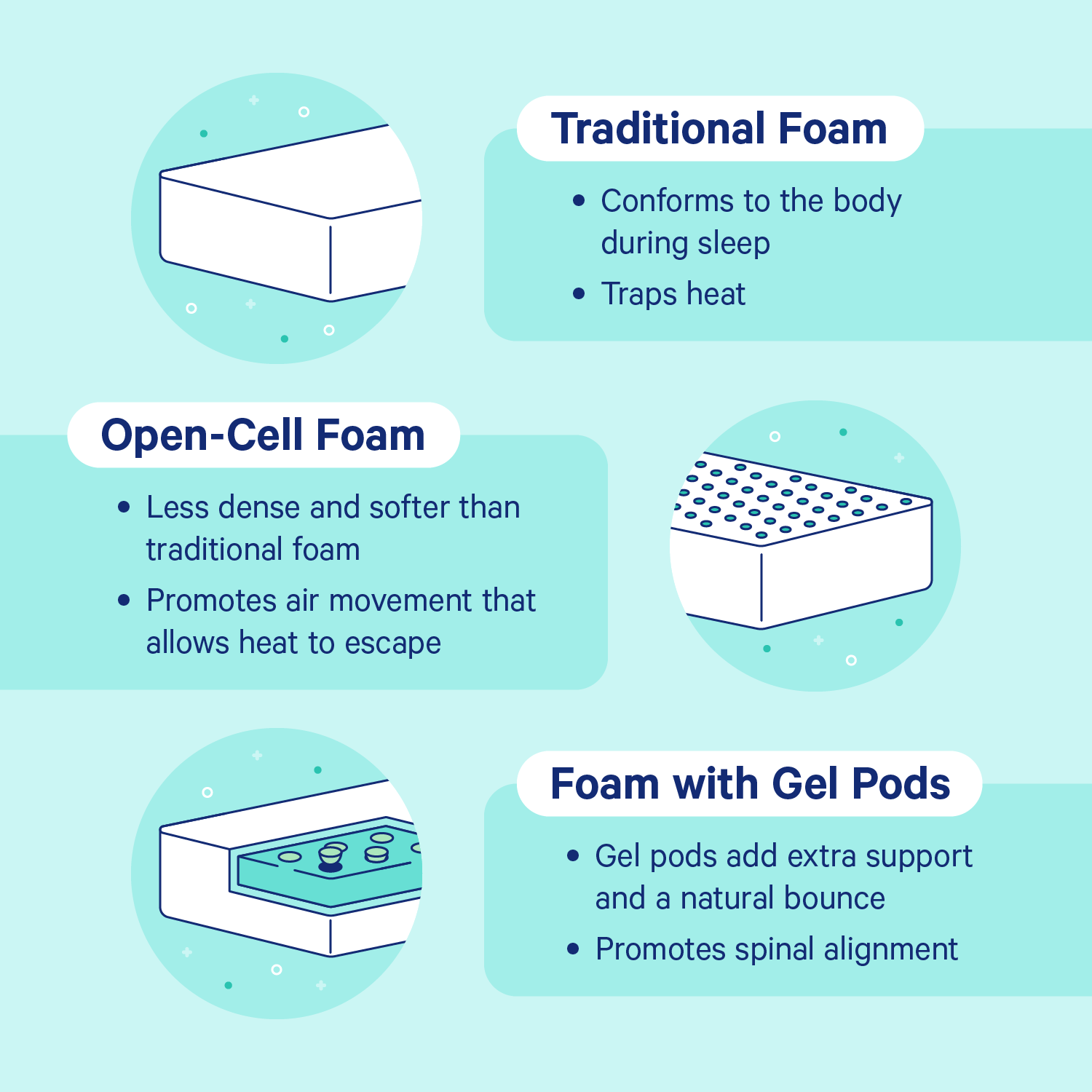
- Motion Isolation – Memory foam mattresses provide superior motion isolation when compared to traditional spring mattresses. This is because the foam layer is able to absorb movement and keep it from transferring to other areas of the mattress.
- Pressure Point Relief – Memory foam is known for its ability to contour to the body and provide pressure point relief. This helps reduce tossing and turning throughout the night, and can help you sleep more comfortably.
- Long-Lasting Comfort – Memory foam mattresses are designed to last for many years, often providing consistent comfort and support throughout the entire lifespan.
- Hypoallergenic – Memory foam mattresses are ideal for people with allergies because they are resistant to dust mites, mold, and other allergens.
- Noise Reduction – Memory foam mattresses are much quieter than traditional spring mattresses. This can be beneficial for couples who share a bed, as it helps to reduce noise and disturbance.
When it comes to finding the perfect memory foam mattress, the thickness of the mattress is an important factor to consider. Generally, the thicker the mattress, the more support and comfort it will provide. A thicker mattress can also offer more cushioning and alleviate pressure points. However, it is important to note that the best thickness for your mattress will depend on your individual needs and preferences. To determine the ideal thickness for your mattress, consider your body type, sleeping position, and any special conditions you may have. With so many factors to consider, it is important to do your research to find the best size memory foam mattress for you.
What is the Thickest Memory Foam Mattress?
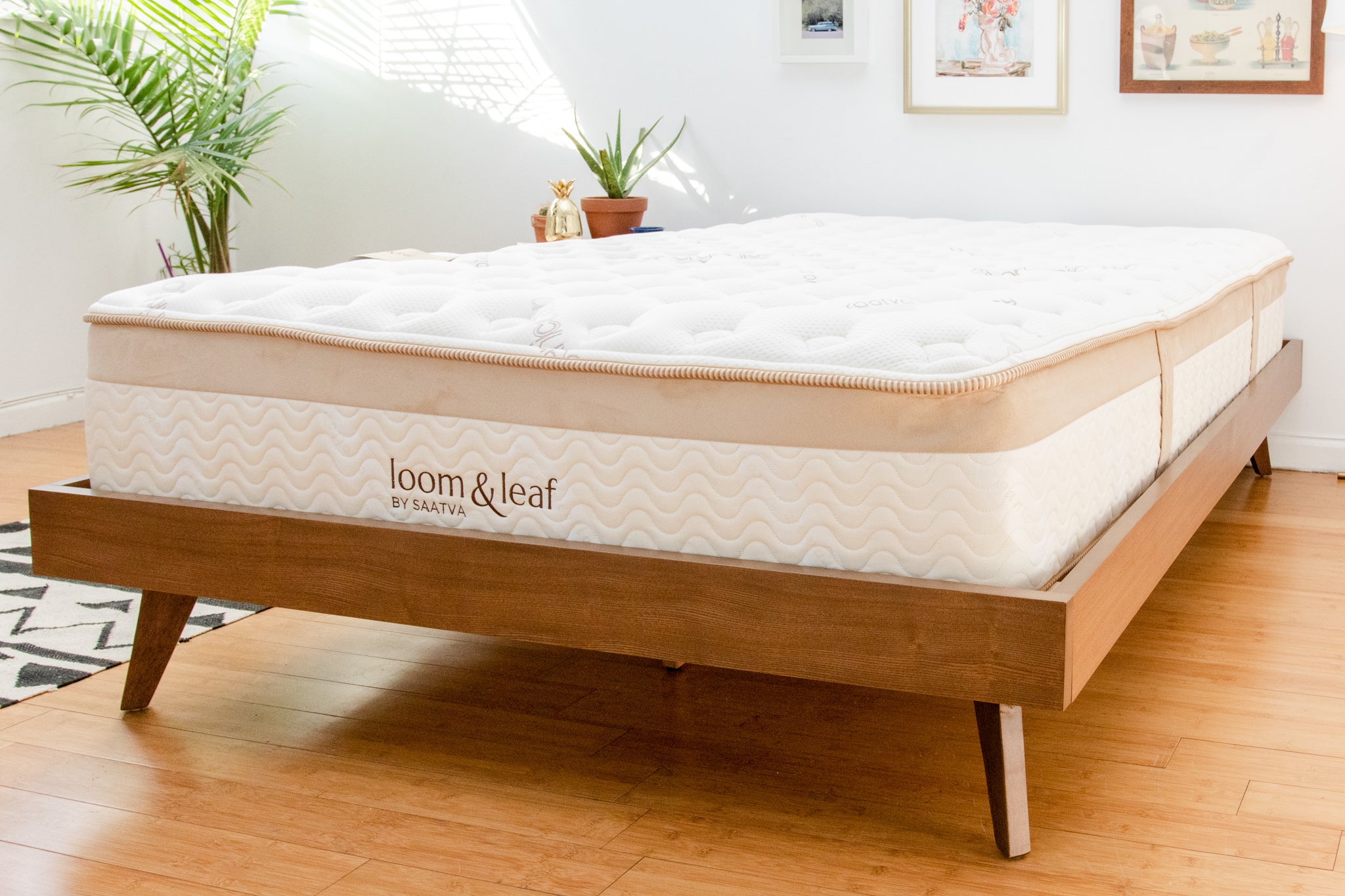
Memory foam mattresses come in a variety of thicknesses, ranging from 6” to 12” and even higher. The thickness of the mattress you choose is an important factor to consider when selecting the perfect mattress for you. The thicker the mattress, the more layers of foam it will have, and the better it will be at providing support to your body.
Thickest Memory Foam Mattress
- 12” Memory Foam Mattress – This mattress is the thickest of all the memory foam mattresses available, and provides the most cushioning and support. It is ideal for those who suffer from aches and pains, as well as those who prefer a firmer sleeping surface.
- 10” Memory Foam Mattress – This mattress is slightly less thick than the 12” version, but still offers plenty of cushioning and support. It is a good choice for those who need a little more cushioning but don’t require the extra thickness of the 12” mattress.
- 8” Memory Foam Mattress – This mattress is a good choice for those who prefer a softer sleeping surface, or for those who don’t require as much cushioning and support. It is a great option for those who are looking for a mattress that is not too thick or too thin.
When purchasing a memory foam mattress, it is important to keep in mind your individual needs and preferences. The thickness of the mattress is an important factor to consider when selecting your perfect mattress, and the 12” mattress is the thickest option available. It is the best choice for those who require the most cushioning and support.
What Size Memory Foam Mattress is Best?
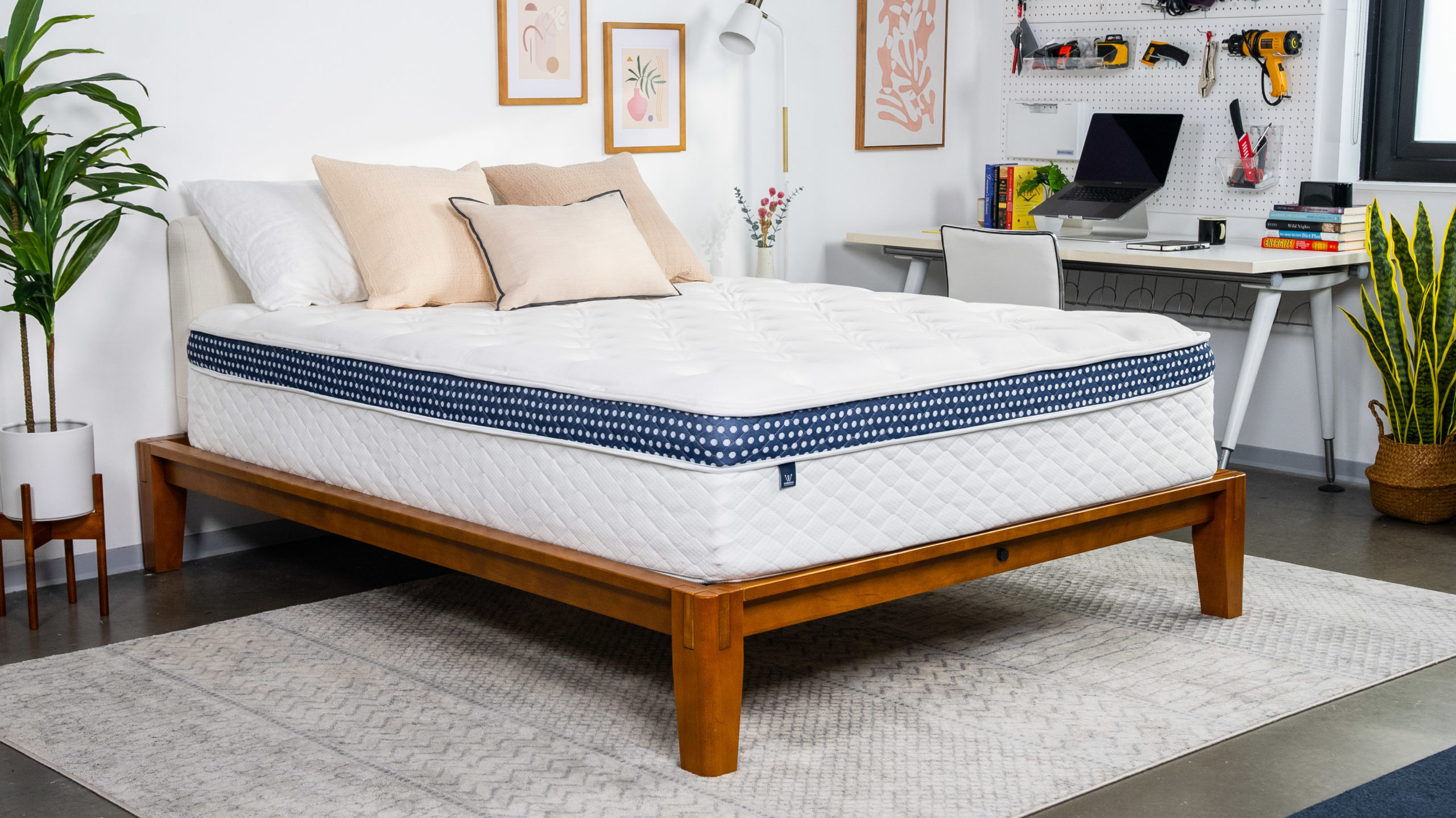
The size of the mattress that is best for you will depend on a variety of factors, such as your body type, lifestyle, and sleep preferences. Memory foam mattresses come in a variety of sizes and thicknesses, so there is something for everyone.
Twin Size Mattresses
Twin size mattresses are usually the smallest size available and typically measure 38 inches wide by 75 inches long. If you are looking for a mattress for a child’s room or a small guest room, a twin size mattress may be the perfect choice. Twin size mattresses come in a variety of thicknesses, typically ranging from 8 inches to 12 inches.
Full Size Mattresses
Full size mattresses are slightly larger than twin size mattresses and usually measure 54 inches wide by 75 inches long. Full size mattresses are a great option for single sleepers or couples who are looking for a mattress that is larger than a twin size but not too large for their room. Full size mattresses come in a variety of thicknesses, typically ranging from 8 inches to 12 inches.
Queen Size Mattresses
Queen size mattresses are the most popular size and usually measure 60 inches wide by 80 inches long. Queen size mattresses are perfect for couples who need more space to sleep comfortably. Queen size mattresses come in a variety of thicknesses, typically ranging from 8 inches to 12 inches.
King Size Mattresses
King size mattresses are the largest size available and usually measure 76 inches wide by 80 inches long. King size mattresses are perfect for couples who need extra space to sleep comfortably. King size mattresses come in a variety of thicknesses, typically ranging from 8 inches to 12 inches.
Conclusion
When choosing the best size memory foam mattress for your needs, it is important to consider your body type, lifestyle, and sleep preferences. Memory foam mattresses come in a variety of sizes and thicknesses, so there is something for everyone.
What Size Memory Foam Mattress Should I Get?
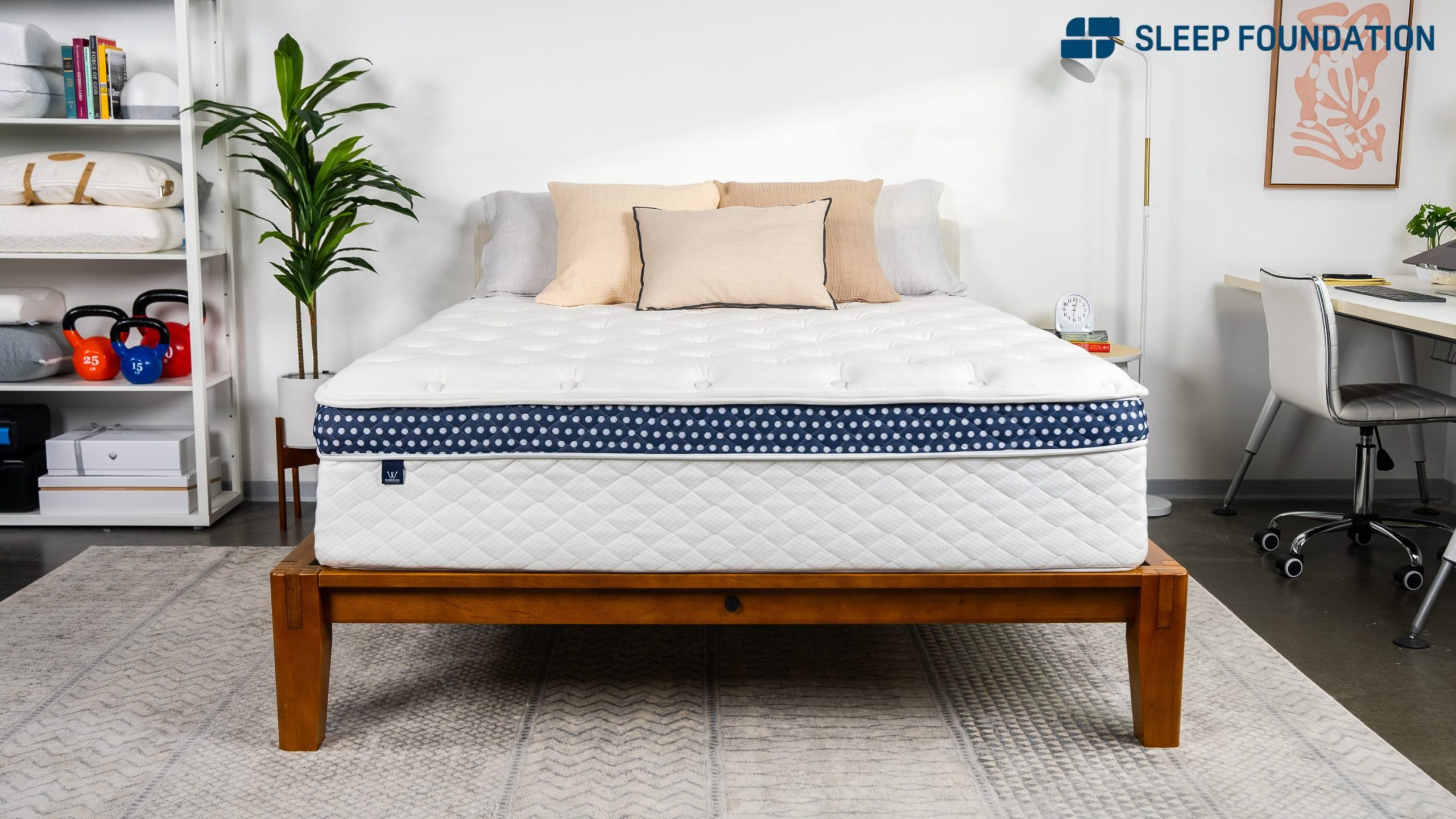
The size of your memory foam mattress should be determined by the size of your bed frame and the desired comfort level. If you have a twin-sized bed frame, for example, then you should get a twin-sized memory foam mattress. For a full-size bed frame, you should opt for a full-size memory foam mattress.
Thickness is also an important factor to consider when choosing a memory foam mattress. For optimal comfort and support, it is recommended to choose a mattress that is at least 8 inches thick. If you are a heavier person, then you may want to consider a thicker mattress, such as 10 or 12 inches, for added support.
It is also important to consider the density of the mattress when selecting a memory foam mattress. A mattress with a denser foam core will provide better support and last longer. The higher the density, the more supportive the mattress will be.
Finally, make sure to consider your budget when selecting a memory foam mattress. Memory foam mattresses can range in price from very affordable to more expensive, depending on the quality and density of the mattress. Be sure to shop around and compare prices to get the best deal.
Ultimately, the size and thickness of your memory foam mattress should be determined by the size of your bed frame, desired comfort level, and budget. Once you have taken all of these factors into consideration, you will be able to find the perfect memory foam mattress for your needs.
Thickness and Comfort of Memory Foam Mattresses
- Thickness: Memory foam mattresses generally range from 8 to 12 inches in thickness, with 10 inches being the most common. Thicker mattresses are typically more comfortable and supportive, but may not fit in all beds and bed frames.
- Comfort: Memory foam mattresses provide increased comfort due to their ability to contour to the body and provide pressure relief. This makes them ideal for those suffering from back and joint pain. The density and firmness of the memory foam can vary greatly, so it is important to choose one that suits your individual needs.
Pros and Cons of Memory Foam Mattresses
- Pros:
- Memory foam mattresses provide excellent support for the body as it evenly distributes body weight.
- They are very comfortable and provide superior pressure relief.
- Memory foam mattresses are also hypoallergenic and dust mite resistant.
- They last longer than other mattress types and do not need to be replaced as often.
- Cons:
- Memory foam mattresses tend to be more expensive than other mattress types.
- They can be very heavy, making it difficult to move or rotate.
- They may retain body heat, making them uncomfortable during hot weather.
- Some people may find the chemical smell of a new memory foam mattress unpleasant.
Frequently Asked Questions
What types of mattresses are available in memory foam?
- Traditional Memory Foam Mattress:
-
- The traditional memory foam mattress is designed to provide pressure relief and support while conforming to the body’s natural curves. It is also designed to reduce motion transfer, providing a peaceful night’s sleep.
- Gel Memory Foam Mattress: Gel memory foam mattresses are designed to provide a cooler sleep experience than traditional memory foam. The gel material helps to disperse the body’s heat, allowing the mattress to remain cool throughout the night.
- Hybrid Memory Foam Mattress: Hybrid memory foam mattresses are designed to provide the best of both worlds. They are a combination of a traditional memory foam mattress and an innerspring mattress, providing support and comfort with the added benefit of increased airflow.
- Adjustable Memory Foam Mattress: Adjustable memory foam mattresses are designed to allow users to adjust the mattress to their desired level of firmness. This type of mattress is ideal for those who prefer a customizable sleep experience.
- Latex Memory Foam Mattress: Latex memory foam mattresses are designed to provide a more natural feel than traditional memory foam. Latex is a more breathable material and provides a softer, more supportive feel than traditional memory foam.
The best memory foam mattress for you ultimately depends on your personal preferences and needs. Consider the different types of mattresses available in memory foam to find the one that best suits your needs.
How long does memory foam typically last?
Memory foam mattresses typically last between 7 and 10 years. The lifespan of a mattress depends on its quality, construction and the care it receives. Quality memory foam mattresses are constructed with high-density foams and better quality components, which makes them more durable and longer-lasting than lower quality mattresses. Proper care and maintenance, such as using a mattress protector and regularly rotating your mattress, can also help to extend its lifespan.
What are the Benefits of a Thicker Memory Foam Mattress?
- Comfort: Thicker memory foam mattresses provide more cushioning and support, making them more comfortable for sleepers.
- Durability: Thicker memory foam mattresses are more durable than thinner ones and can withstand more wear and tear.
- Temperature Regulation: Thicker memory foam mattresses are better at trapping heat, which can help you sleep more comfortably at night.
- Motion Isolation: Thicker memory foam mattresses absorb more motion, making them better at reducing motion transfer between sleepers.
- Pressure Relief: Thicker memory foam mattresses provide more cushioning and support, which helps to reduce pressure points and improve circulation.
Are there any special considerations when buying a thicker memory foam mattress?
- Durability: Thicker memory foam mattresses tend to be more durable and last longer than thinner mattresses.
- Motion Isolation: Another benefit of thicker memory foam mattresses is that they offer better motion isolation. This means that if your partner moves in their sleep, you won’t feel it on the other side of the bed.
- Heat Retention: Thicker memory foam mattresses tend to retain more heat than thinner mattresses. This can be beneficial if you like a warm bed, but if you prefer to sleep cool, you may want to look for a mattress with cooling technology.
- Weight: Thicker memory foam mattresses tend to be heavier than thinner mattresses, so they may be more difficult to move. If you plan on moving your mattress often, you may want to opt for a thinner mattress.
- Price: Thicker memory foam mattresses tend to be more expensive than thinner mattresses, so if you’re on a budget, you may want to opt for a thinner mattress.
When buying a thicker memory foam mattress, it’s important to consider these factors to ensure you get the most comfortable and supportive mattress for your needs.
Does the thickness of memory foam affect the comfort level of the mattress?
Yes, the thickness of memory foam has a direct impact on the comfort level of the mattress. Memory foam mattresses provide a unique level of comfort and support, but how thick the mattress is has a direct effect on how comfortable it is. Here are some points to consider:
- The thicker the mattress, the more supportive it will be, providing more cushioning and support for your body.
- The higher the foam density, the more comfort and support you will get from your memory foam mattress.
- A thicker mattress also creates a deeper sleep surface, which helps to reduce tossing and turning during the night.
- A thicker memory foam mattress also helps to support your body’s natural alignment and can improve your overall sleep quality.
- A thicker mattress also helps to reduce pressure points, which can help with pain relief.
- The thicker the memory foam mattress, the longer it will last, as it will retain its shape over time.
So, it is clear that the thickness of memory foam does affect the comfort level of the mattress. The thicker the mattress, the more support and cushioning it will provide, which will help to improve your overall sleep quality.
Conclusion
Memory foam mattresses come in a range of thicknesses, from 6 inches up to 14 inches. The best mattress for you will depend on your personal preferences, budget, and sleeping habits. If you suffer from spinal problems or prefer a very plush mattress, then a thicker mattress may be a better choice. If you prefer a firmer mattress or are on a budget, then a thinner mattress may be the way to go. Ultimately, the best mattress for you is the one that suits your needs and gives you the best night’s sleep.
